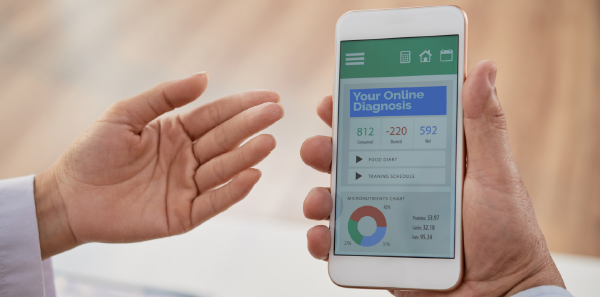
Maintaining Online Professionalism for Physicians
Certainly, the internet and social media can be leveraged for good, improving patient safety and communication and aiding in the dissemination of educational content. Many physicians are now masters of the internet, using social media as a platform to raise awareness of issues in health care and advocate for patients. Others use it to effectively promote their medical practices.
Explore This Issue
ACEP Now: Vol 39 – No 03 – March 2020However, improper or naive use of social media can also result in unintended consequences. Avoiding misuse may help physicians circumvent potential personal, professional, or even legal consequences that could unintentionally result.
Here are some facets to consider.
1. Utilize ethical principles. Physicians should consistently be ethical when preserving the patient-physician relationship. This includes ensuring confidentiality, privacy, and respect for persons in online settings and communications. The pervasive social media craze sometimes carries people to the extreme, resulting in “crossing the line”—both in terms of good taste and confidentiality. First and foremost, do not disclose protected health information (PHI), including any individually identifiable information such as demographic data. Any information or images posted to a social site immediately leave your control, even if subsequently deleted. Once in public, an embarrassing or legally encumbering item can reappear at any (unexpected and unwanted) time.
PHI/HIPAA-protected information includes:
- Names
- All geographical identifiers smaller than a state
- Dates (other than year)
- Patient demographics
- License, device, or vehicle identifiers
- URLs, which can contain identifying information such as names or birthdates
- Internet Protocol (IP) address numbers
- Biometric identifiers
- Full-face photographic images and any comparable images
- Images are a particularly challenging area. Even with meticulous removal of all patient identifiers, patients can put two and two together about a seemingly sterilized posting and recognize themselves or others. In addition to obtaining detailed informed consent to use patient vignettes and images, stay attuned to contextual issues when posting in a public forum. Assume that perception is reality.
2. Separate spheres. It is ideal that physicians keep online professional and social spheres separate. (The American Medical Association strongly recommends this as well.)1
3. Maintain professional use of email.
Email or any other electronic communications between physicians and patients should only be utilized in an established physician relationship and with patient consent. Documentation of any electronic communication should also be kept in patients’ medical records.
4. Remember the permanency of online activity. Physicians, residents, and students should be aware that online activity can be permanent and that any online activity may have implications for their future professional lives. Employers have turned away job applicants simply due to their problematic digital behaviors.
Pages: 1 2 3 | Single Page




No Responses to “Tips for Coping with Dr. Google, Online Reviews, Social Media, and More”